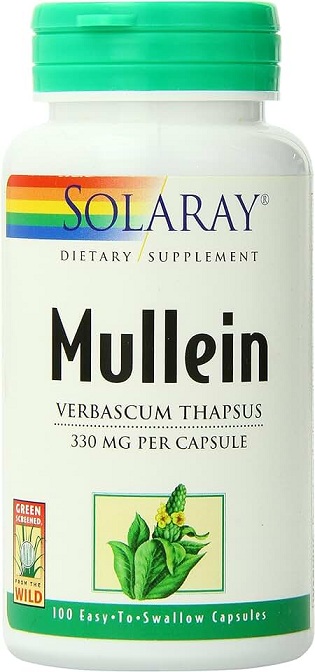Mullein, scientifically known as Verbascum thapsus, is a biennial plant native to Europe, Asia, and North Africa but now naturalized in many parts of the world. Mullein has a long history of medicinal use dating back thousands of years, particularly in European folk medicine and Native American healing traditions. Mullein supplements, derived from the flowers of the mullein plant, have gained recognition in modern herbalism for their potential health benefits. In this comprehensive guide, we explore the multifaceted advantages of mullein flower supplements, drawing upon both historical use and contemporary scientific research.
Historical and Cultural Significance
Mullein holds a prominent place in herbal medicine traditions worldwide. Throughout history, mullein has been revered for its medicinal properties and versatile applications. In ancient times, mullein was used by various cultures for its soothing, expectorant, and anti-inflammatory properties. Native American tribes used mullein to address respiratory conditions, earaches, and skin issues. In European folk medicine, mullein was valued as a respiratory tonic, pain reliever, and wound healer. Its soft, fuzzy leaves and vibrant yellow flowers have inspired herbalists, healers, and artists for centuries.
Respiratory Health
One of the primary benefits associated with mullein flower supplements is their potential to support respiratory health. Mullein contains mucilage, saponins, and other bioactive compounds that have expectorant, demulcent, and anti-inflammatory properties. These compounds help soothe irritated mucous membranes, reduce inflammation in the respiratory tract, and promote the expulsion of excess mucus. Mullein supplements are often used to alleviate symptoms of respiratory conditions such as coughs, bronchitis, asthma, and congestion. Additionally, mullein may help reduce the frequency and severity of respiratory infections and support overall respiratory wellness.
Ear Health
Mullein flower supplements may also offer benefits for ear health and earaches. Mullein oil, extracted from the flowers of the mullein plant, has been traditionally used as a natural remedy for ear pain and ear infections. Mullein oil is believed to have antimicrobial, anti-inflammatory, and analgesic properties that help alleviate ear discomfort and promote ear healing. Mullein oil can be applied topically to the outer ear canal to help soothe irritation, reduce inflammation, and relieve pain associated with earaches or swimmer’s ear.
Skin Care
Mullein flower supplements may contribute to maintaining healthy skin and promoting skin healing processes. Mullein contains flavonoids, phenolic acids, and other bioactive compounds with antioxidant, anti-inflammatory, and antimicrobial properties. These compounds help protect the skin from oxidative damage, reduce inflammation, and inhibit the growth of harmful bacteria. Mullein supplements may be used topically to soothe irritated or inflamed skin, alleviate itching, and promote the healing of wounds, cuts, burns, and insect bites. Additionally, mullein’s emollient properties help moisturize and soften the skin, making it beneficial for individuals with dry or sensitive skin.
Digestive Comfort
Mullein flower supplements may offer benefits for digestive health and gastrointestinal comfort. Mullein’s mucilaginous properties help coat and soothe the lining of the digestive tract, reducing irritation and inflammation. Mullein supplements may help alleviate symptoms of indigestion, heartburn, acid reflux, and gastritis. Additionally, mullein’s mild laxative effects may help promote bowel regularity and relieve constipation. Mullein supplements are often used to support overall digestive function and promote digestive comfort after meals.
Immune System Support
Mullein flower supplements may have immune-modulating effects, helping to support and strengthen the immune system. Mullein contains antioxidants and other bioactive compounds that help protect cells from oxidative damage and enhance immune function. Regular consumption of mullein supplements may help reduce the risk of infections, boost immune response, and promote overall health and well-being. Additionally, mullein’s anti-inflammatory properties may help reduce inflammation in the body and support immune system function.
Usage and Dosage
Mullein flower supplements are available in various forms, including capsules, tinctures, teas, and oils. The appropriate dosage may vary depending on factors such as the specific health concern being addressed, the concentration of active ingredients in the supplement, and individual factors such as age, weight, and overall health status. It is advisable to follow the manufacturer’s instructions or consult with a healthcare professional to determine the suitable dosage for optimal results.
Safety Considerations
Mullein flower supplements are generally considered safe for most people when used as directed. However, some individuals may experience mild side effects such as gastrointestinal upset or allergic reactions. Pregnant and breastfeeding women should consult a healthcare professional before using mullein supplements. Additionally, individuals with certain medical conditions or taking medications should use mullein supplements cautiously and under the guidance of a healthcare provider.
Conclusion
Mullein flower supplements offer a wide range of potential health benefits, from supporting respiratory health and ear health to promoting skin care, digestive comfort, and immune system support. Rooted in centuries of traditional use and supported by contemporary research, mullein continues to be recognized as a valuable herbal remedy with diverse therapeutic effects. However, it is essential to use mullein supplements judiciously and under the guidance of a healthcare professional, especially for individuals with pre-existing medical conditions or those taking medications. With careful use, mullein supplements may serve as a valuable addition to a holistic approach to health and well-being.

